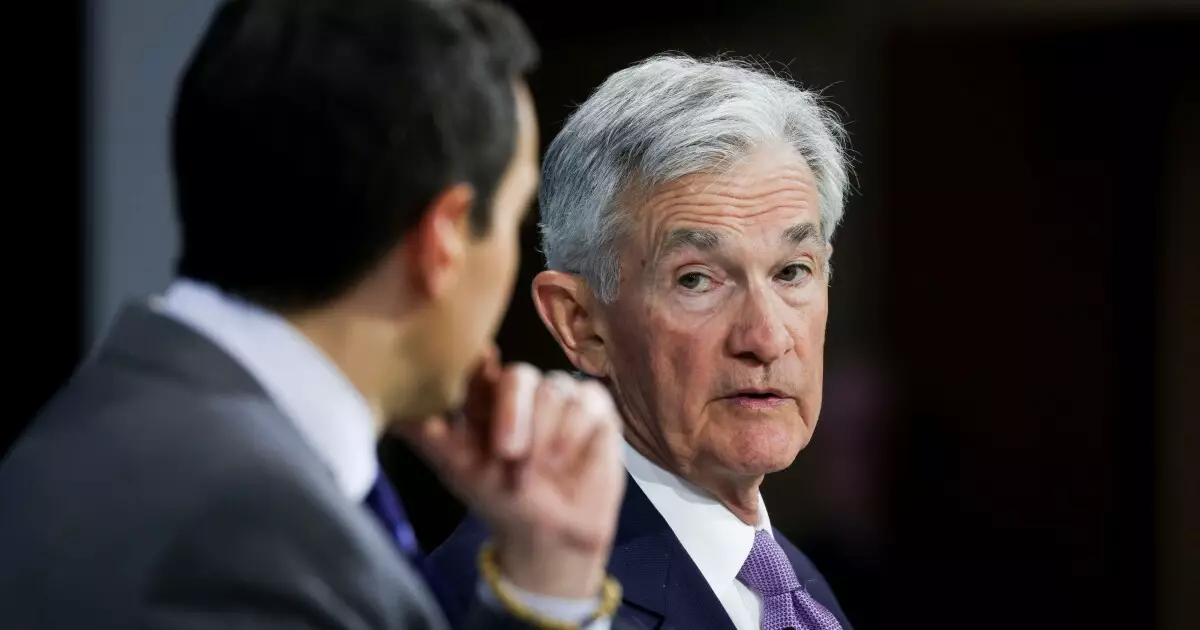In recent months, the Federal Reserve has faced new challenges and political pressures, particularly in light of the changing administration. Chair Jerome Powell finds himself balancing the need for operational independence with the demands and behaviors of the political landscape. This complex relationship raises critical questions about the autonomy of the Fed and the implications of political influence on monetary policy.
The notion of a “shadow Fed chair” has emerged amidst discussions surrounding Powell’s leadership. Initially suggested by Scott Bessent, a financial strategist and former advisor, the idea posits that a shadow figure could undermine Powell’s authority as his term progresses towards its end in 2026. This concept raises essential concerns about the control political figures may seek to exert over the central bank’s decisions, especially as the outgoing administration undergoes transitions of power. Bessent’s commentary highlights a potential strategy whereby advances in communications concerning future monetary policies could overshadow Powell’s authority and complicate his decision-making capabilities.
However, during a recent dialogue at the New York Times’ Dealbook Summit, Powell seemed undeterred by such speculations. He emphasized that a collaborative relationship between the Federal Reserve and the Treasury is crucial, underscoring a historical precedent of inter-agency cooperation. This assertion suggests that while political maneuvering is possible, the structure of governance and established customs may mitigate significant disruptions to the Fed’s operations.
The Importance of Independence
An essential theme in Powell’s discourse is the principle of the Federal Reserve’s independence. He articulates that the Fed’s ability to operate free from direct political interference is vital to ensuring its effectiveness in managing economic policy. Independence entails making decisions that serve the broader interests of the economy rather than catering to specific partisan agendas. This foundational concept is significant in maintaining credibility and ensuring that policies are based on economic evidence and analysis rather than political pressures.
Powell reinforced this stance by articulating that the Fed is only accountable to Congress, which creates a distinct separation from the executive branch. Such independence is deemed necessary for the central bank to address economic issues effectively, further cementing its status as a vital component of the country’s financial architecture.
As the Trump administration contemplates imposing wide-ranging tariffs, Powell acknowledges the complex dynamics at play. The unpredictability regarding the size, nature, and duration of potential tariffs complicates the Fed’s ability to react. Powell’s comments reflect a cautious approach, recognizing that the central bank must respond to concrete economic indicators rather than speculate on possible future policies. This highlights the Fed’s role in assessing real-time data and responding to tangible economic conditions as they unfold in response to governmental policies.
Furthermore, Powell’s insights into the Fed’s current modeling strategies underscore a methodical approach to navigating economic uncertainty while remaining politically neutral. The Fed’s adaptability in addressing potential economic challenges due to tariffs speaks to its broader mandate: ensuring a stable and well-functioning economy.
Cryptocurrency and the Evolving Financial Landscape
Another critical aspect of Powell’s leadership is the Fed’s approach to emerging technologies, particularly cryptocurrencies. As new financial instruments continue to develop, Powell’s acknowledgment of the Fed’s responsibilities in protecting the traditional banking system is pertinent. As digital assets become increasingly integrated into the economy, it is critical that the Fed regulates their interactions with established financial institutions effectively.
This regulatory oversight is not simply a matter of enforcing financial norms but also involves a consumer protection dimension. Ensuring that consumers are adequately informed about their investments in digital assets is essential to maintaining trust in the financial system. The Fed’s emphasis on a cautious yet informed engagement with cryptocurrencies showcases its commitment to adapting to contemporary financial landscapes while safeguarding economic stability.
Jerome Powell’s leadership of the Federal Reserve encapsulates the ongoing tension between political influence and the necessity for operational independence. As the institution navigates challenges presented by an evolving administration and emerging economic realities, maintaining the integrity of its mandate will be crucial in the years ahead. The interplay of trust, historical collaboration, and independent decision-making will ultimately determine the Fed’s effectiveness in addressing the nation’s economic challenges.

